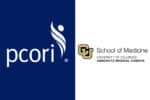
 Boston, MA – February 4, 2025 – OpenNotes is proud to announce its participation in the Characterizing Engagement and Equity in Research (CHEER) study, an initiative led by researchers at the University of Colorado. Funded by a $2.1 million award from the Patient-Centered Outcomes Research Institute (PCORI), the CHEER study aims to improve methods of engaging diverse and historically underrepresented communities in health research.
Boston, MA – February 4, 2025 – OpenNotes is proud to announce its participation in the Characterizing Engagement and Equity in Research (CHEER) study, an initiative led by researchers at the University of Colorado. Funded by a $2.1 million award from the Patient-Centered Outcomes Research Institute (PCORI), the CHEER study aims to improve methods of engaging diverse and historically underrepresented communities in health research.
OpenNotes is one of six CHEER teams involved in the nationwide effort. The OpenNotes team will focus on a key challenge: improving engagement and research participation among older adults with limited digital health literacy. This work reflects OpenNotes’ ongoing mission to partner with patients and families by increasing transparency and access to medical information.
“We are excited to be part of this important initiative,” said Catherine M. DesRoches, DrPH, Executive Director of OpenNotes at Beth Israel Deaconess Medical Center, and Associate Professor of Medicine at Harvard Medical School. “Partnering with patients, particularly those who face significant barriers to health information, is essential to advancing equity in healthcare. Through the CHEER study, we hope to identify strategies that make meaningful engagement possible for older adults and other underserved populations.”
About the CHEER Study
The CHEER study, led by Drs. Bethany Kwan and Matthew DeCamp and colleagues at the University of Colorado, aims to answer a crucial question in patient-centered outcomes research: Which methods of engagement work best under different circumstances and for diverse communities?
Despite growing recognition of the importance of community engagement in research, evidence is limited regarding how to select engagement methods that are effective, appropriate, and feasible for specific populations. To address this challenge, the study will examine 12 established engagement methods, such as advisory panels and design studios, and assess their effectiveness across six diverse research teams.
Three-Part Research Plan
The CHEER study is structured around three key aims:
- Characterizing Engagement Methods: Experts in community and academic research will participate in a series of surveys to provide detailed descriptions of 12 different engagement approaches.
- Evaluating Methods Across Communities: Six CHEER teams will partner with communities to assess and rank the engagement methods based on acceptability, feasibility, and relevance to their needs.
- Testing Methods in Practice: Each CHEER team will implement three engagement methods to co-develop a research project addressing a priority topic for their community. Researchers will gather data through surveys, interviews, and observations to evaluate which methods produce the best engagement outcomes.
“We’ve long known that engaging patients, families, and communities in research is the right thing to do,” said Dr. DeCamp, Associate Professor of General Internal Medicine at the University of Colorado. “Surprisingly, we don’t know the best way to do it. Our research project seeks to answer that question by testing different methods of engaging communities and assessing what works best and when.”
Engaging Underrepresented Communities
Each CHEER team will collaborate with a specific community that has historically faced challenges in accessing or benefiting from health research. These include:
- Medically underserved populations managing chronic conditions like diabetes
- Hispanic and/or Latino families accessing disability services
- Refugee communities facing mental health challenges
- African American and Hispanic/Latino caregivers for people with dementia
- Transgender individuals and older adults addressing health data access
Expanding upon prior research interests, the OpenNotes team will work with older adults who have limited access to or experience with digital health technologies. The goal is to develop and refine engagement strategies that foster trust, increase participation, and reduce barriers to research and health information access.
Collaboration for Impact
The CHEER study reflects a strong commitment to equity and partnership. Community representatives are serving as co-equal partners in the research process, ensuring that their voices shape both the engagement methods and the studies being planned.
“We are not only studying the science of engagement, but we also have community engagement on both sides,” said Dr. Kwan, Professor in the Department of Emergency Medicine at the University of Colorado. “Our patient and community partner representatives are not just consultants, they are investigators.”
The study team will use qualitative comparative analysis to examine patterns in engagement across all six research contexts. Findings will inform updates to the DICEmethods.org website, a resource developed by the University of Colorado to guide researchers in selecting evidence-based engagement strategies.
###
About OpenNotes
Based at Beth Israel Deaconess Medical Center, a major Harvard Medical School teaching hospital, OpenNotes is an academic lab studying, spreading, and teaching transparent communication among patients, care partners, and clinicians. OpenNotes is motivated by evidence indicating that when clinicians offer patients and care partners ready access to clinical notes, the quality and safety of care improves. When clinical notes are shared with patients, we call these ‘open notes.’ For more information on OpenNotes, visit opennotes.org.
About the University of Colorado Anschutz Medical Campus
The University of Colorado Anschutz Medical Campus is a leading academic medical center with a strong focus on innovation in research, education, and healthcare delivery. For more information, visit cuanschutz.edu.
About PCORI
The Patient-Centered Outcomes Research Institute (PCORI) funds research designed to help patients, caregivers, and healthcare providers make better-informed decisions. For more information, visit pcori.org.




You must be logged in to post a comment.